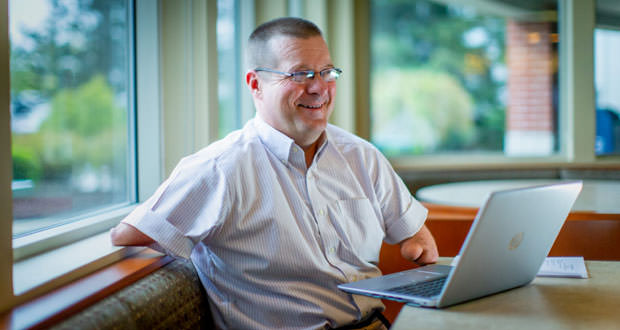AI for Accessibility: Here are the new projects supported by Microsoft
Microsoft announces the 7 beneficiaries of the program that supports initiatives for individuals with disabilities and exploit artificial intelligence to improve their quality of life.
The ” Global Accessibility Awareness Day “, an event designed to raise awareness about the importance of accessibility to digital and the role that modern technologies can play in helping people with some form of disability, which make up about 15% of the world population, that is, almost one billion individuals. Unfortunately, only 1 in 10 people has access to the tools and support services they need to achieve a better quality of life.
On the occasion of the event, Microsoft announced seven new beneficiaries in the context of its AI for Accessibilty program launched last year and which provided for the allocation of $25 million over five years to support companies (research institutes, non-profit organizations, NGO and startups) that use Artificial Intelligence to develop technologies focused on three areas: employment, daily life and communication / connections. As for the beneficiaries, this year they will receive access to the Azure AI platform and can rely on the support of Microsoft engineers. Here are the seven realities chosen this year by Microsoft:
- Our Ability – a Glenmont company that is developing an AI-based chatbot and is aimed at helping people with cognitive disabilities to better prepare for job interviews.
- University of Sydney – a group of researchers working on the development of a wearable sensor system that can help the 75 million people with epilepsy to prevent and manage crises for a better quality of life.
- Pison Technology – a Boston company working on a wearable system that allows individuals with neuromuscular disabilities (such as amyotrophic lateral sclerosis or multiple sclerosis) to control digital platforms via ” micro-gesture. “
- Voiceitt – an Israeli company that is developing a voice recognition app designed to understand non-standard speech constructs so as to offer individuals with speech disabilities a real-time, more accessible communication platform.
- Birmingham City University – researchers are developing a system that allows individuals with limited mobility to control digital platforms using voice commands and eye movement.
- Massachusetts Eye and Ear – a group of researchers is working on a mobile app that offers visual assistance to provide navigation and localization services for people with visual impairments.
- University of California Berkeley – researchers are building a mobile app for visually impaired individuals to help them have an audio description of their surroundings.
” What emerges most from these new projects is the way in which many of them exploit standard Artificial Intelligence capabilities, such as a chatbot or information gathering, and profoundly revolutionize the value of technology in typical scenarios for a person with a disability ” How to find a job, use a computer or anticipate a seizure, ” said Mary Bellard, Senior Accessibility Architect for Microsoft.

